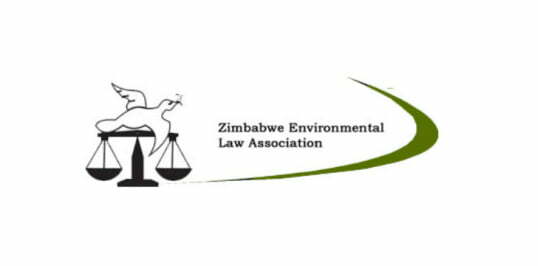The Zimbabwe Environmental Law Association (ZELA) has urged authorities to take decisive action against small-scale artisanal miners accessing disused underground shafts, which are encroaching on local communities.
By Ryan Chigoche
The illegal gold mining crisis in Zimbabwe has escalated into a multifaceted issue, posing serious threats to the environment, public safety, and the socio-economic stability of the nation. As individuals resort to illicit mining due to pervasive poverty and unemployment, the repercussions extend beyond the mines, impacting communities, ecosystems, and the economy at large.
An incident at Globe and Phoenix Primary School in Kwekwe, where a classroom block collapsed last year, starkly illustrates the dangers of irresponsible mining practices. This tragedy serves as a reminder that such activities must be curtailed. Reports indicate that a similar situation is developing in Mazowe, where mining activities are increasingly encroaching on human settlements.
Batanai Mutasa, ZELA’s communications officer, emphasized the need for stricter penalties to deter illegal mining, including a ban on mining disused underground shafts of old, no longer operational mines.
“Illegal miners must be actively blocked from using disused underground shafts. The Mines and Minerals Act should incorporate harsher penalties for those who continue illegal activities despite efforts to promote compliance and environmental protection. The government must enforce legal frameworks by enhancing collaboration among state and non-state institutions. The Ministry of Mines and EMA should work with local authorities and traditional leaders to monitor mining activities, even in resource-limited settings,” Mutasa stated.
In line with this, ZELA is actively promoting responsible and sustainable mining practices by advocating for stricter regulations to monitor the environmental and structural impacts of small-scale mining operations. The organization has analyzed the Mines and Minerals Act and key regional and international frameworks, highlighting both advancements and gaps in the proposed Mines and Minerals Amendment Bill, while offering recommendations for improvement.
ZELA is also implementing programs to equip artisanal and small-scale miners (ASMers) with essential knowledge in Safety, Health, and Environment (SHE), along with Disaster Risk Rescue skills. The organization encourages ASMers to regularize their operations and adhere to mining regulations. Furthermore, ZELA addresses children’s rights within mining contexts, providing crucial insights into the vulnerabilities faced by children in mining communities.
As part of Zimbabwe’s macroeconomic roadmap to achieve upper-middle-income status by 2030, the government unveiled plans in October 2019 to revitalize the mining sector and create a $12 billion economy by the end of 2023, with the latest figures from 2022 estimating its value at around $5.6 billion. This initiative focuses primarily on gold mining, Zimbabwe’s largest export, alongside platinum, diamonds, chrome, iron ore, coal, lithium, and other minerals.
However, the environmental toll of illegal gold mining is staggering. Unregulated operations lead to widespread deforestation, soil erosion, and the contamination of water sources with toxic substances such as mercury.
.png)




